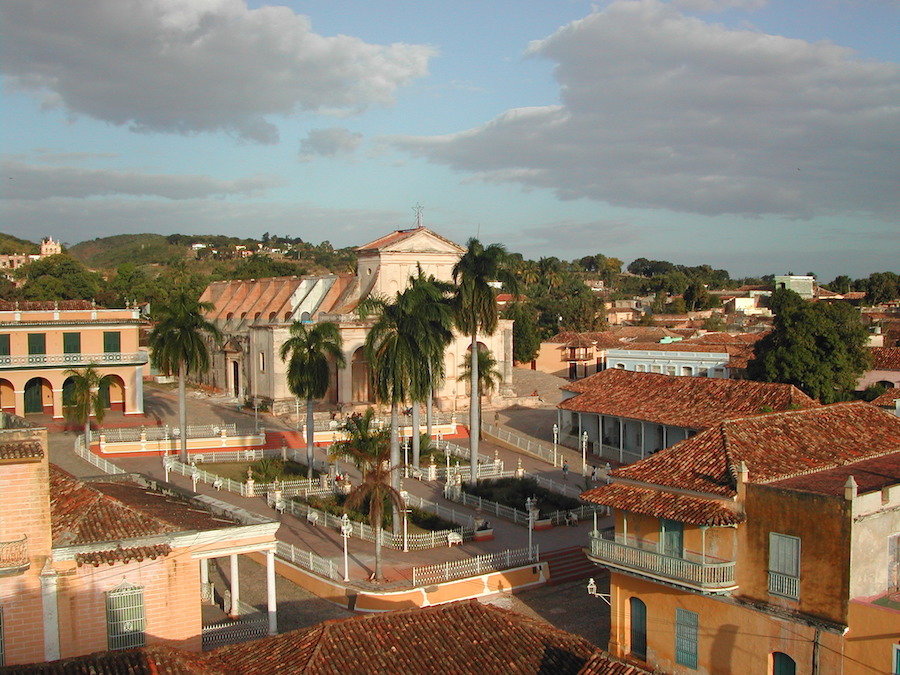After A Day At Sea, Arrival At Cienfengos And Visiting Trinidad
Tuesday January 29 - Cienfuegas - took bus tour first to Trinidad - UNESCO sight, cobblestone streets, cathedral with beautiful wooden alter, handicraft museum with man making pots, and temple in home for Santirita where black Jesus and white Mary; then back to Cienfuegas where saw palace looks like Alhambra or Taj Mahal being refurbished, then to square.
Cienfuegos to Trinidad by bus: ($6) – 12:15, 14:40, 15:15, 18:00 (1 hour & 35 min)
Trinidad
Did You Know? - Christopher Columbus arrived on Trinidad in 1498 and the island remained a Spanish colony for 300 years. In the late 1800s, an agreement was drafted to allow French settlers to obtain land on the island if they swore their allegiance to the Spanish Crown. This bolstered the island's population tenfold over 12 years as French planters, their slaves, and freed slaves from nearby islands established sugar and cocoa plantations. When the British arrived on Trinidadian shores with 18 warships in 1797, the Spanish surrendered the island.

The first thing we see on the bus ride is the Customes House on the bay

Cobblestones streets everywhere
 Bright colors in the marketplace
Bright colors in the marketplace

TV antennas eventhough there are only four channels

Government buildings seem to be well taken care of

Interesting colors

Trinidad is close to the ocean
Did You Know? - Trinidad was founded on December 23, 1514 by Diego Velázquez de Cuéllar under the name Villa de la Santísima Trinidad.

Did You Know? - The Plaza Mayor of Trinidad is a plaza and an open-air museum of Spanish Colonial architecture. Only a few square blocks in size, the historic plaza area has cobblestone streets, houses in pastel colors with wrought-iron grilles, and colonial-era edifices such as the Santísima Trinidad Cathedral and Convento de San Francisco. The Municipal History Museum is in town also.




There were many stops as the guides presented the city





Click for full sized image of the Plaza Mayor



Palacio Cantero






Did You Know? - Nowadays, Trinidad's main industry is tobacco processing. The older parts of town are well preserved, as the Cuban tourism industry sees benefit from tour groups. In contrast, some parts of town outside the tourist areas are very run down and in disrepair, especially in the centre. Tourism from Western nations is major source of income in the city.

There are not a lot of products in the stores

The building look pretty tired and run down

Very little automobile traffic

It's a slower pace


Afro-Cuban religious center

Did You Know? - The door opens to white wash room with blue painting of waves and fish. The room is empty except for a black doll dressed in white sitting in a chair in the middle of the room. Welcome to the Santeria Temple of Yemaya, Goddess of the sea. Beyond the main room is the shrine. The Goddess is dressed in white and blue stood on a pedestal. The santeros (priests of Santeria) is usually around to explain the ideas and teaching of Santeria; a popular religious practice in Cuba.

The guide provides an explanation of what we are about to see

The building is old but well taken care of




Offerings














































































insert content here